genetics

Shermer and Henderson discuss: hindsight bias • genes, environment, luck, contingency • foster care • incarceration rates • marriage, divorce, childhood outcomes • poverty, welfare programs, and social safety nets • the young male syndrome • alcohol, drugs, depression • luxury beliefs of educated elites • wealthy but unstable homes vs. low-income but stable homes • inequality • Henderon’s experience in the military, at Yale and Cambridge • the Warrior-Scholar Project.

Shermer and Stephens-Davidowitz discuss: why some countries produce so many more NBA players than others • the greatest NBA players adjusted for height • why tall NBA players are worse athletes than short NBA players • How much do NBA coaches matter and what do they do? • In a population of 8 billion today compared to centuries past, where are all the Mozarts, Beethovens, Da Vincis, Newtons, Darwins, etc.?
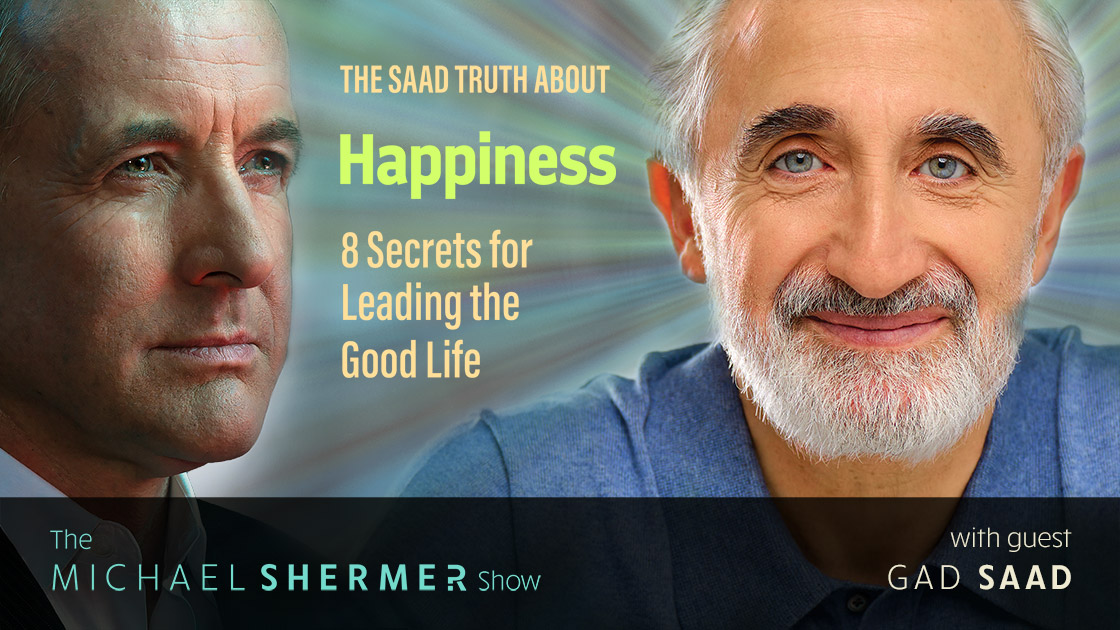
Shermer and Saad discuss: operational definitions of the “good life,” “happiness,” and “well being” • emotions • eudaimonia (the pursuit of meaning) versus hedonism (the pursuit of pleasure) • genetics and heritability • cultural components • the Big Five (OCEAN) • marriage (mate selection) • health • exercise and stress reduction • religion • anti-fragility • a playful outlook and curiosity • variety (the “spice of life”) • what the ancient Greeks got right about living the good life •…
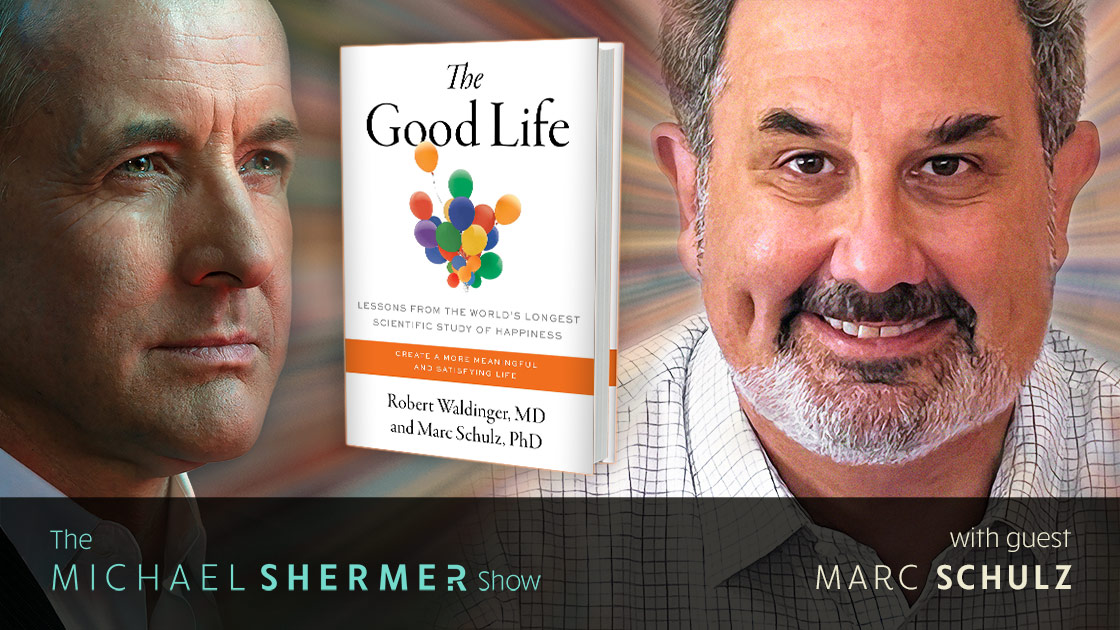
Shermer and Schulz discuss: an operational definition of the “good life” or “happiness” or “well being” • the reliability (or unreliability) of self-report data in social science • relative roles of genes, environment, hard work, and luck in how lives turn out • personality and to what extent it can be scientifically measured and studied • factors in early childhood that shape mental health in mid and late life • generational differences: • the impact of loneliness • misconceptions about happiness…
Was the great scientist E. O. Wilson a racist? No! Because Wilson corresponded with the notorious race differences psychologist Phillippe Rushton, critics claim it proves Wilson was a racist. Here’s why the critics are wrong, dangerously wrong.
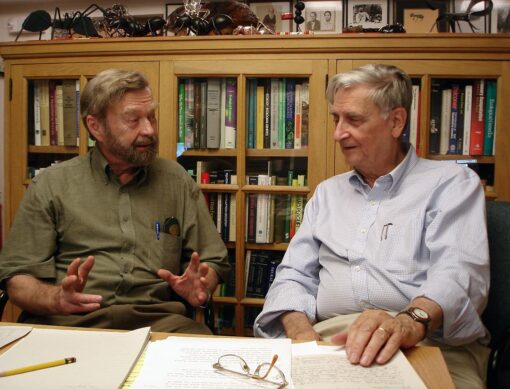
Is there vigilantism in science? Was the renowned Harvard biologist E. O. Wilson wrongly convicted of racism and promoting race science in the court of public opinion? Yes, says his long-time collaborator and world-class scientist Bert Hölldobler.
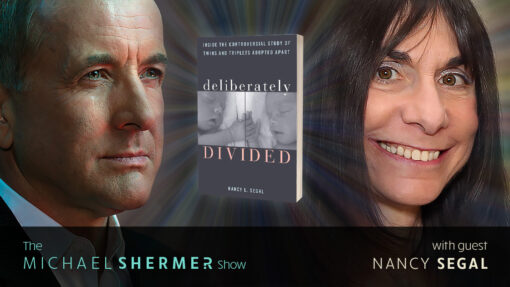
In this conversation, Nancy Segal reveals the inside stories of the agency that separated the twins, and the collaborating psychiatrists who, along with their cadre of colleagues, observed the twins until they turned twelve. This study, far outside the mainstream of scientific twin research, was not widely known to scholars or the general public.
In episode 225, Michael Shermer speaks with Nancy Segal about deliberately divided twins and what they tell us about human nature, based on her book Deliberately Divided: Inside the Controversial Study of Twins and Triplets Adopted Apart.
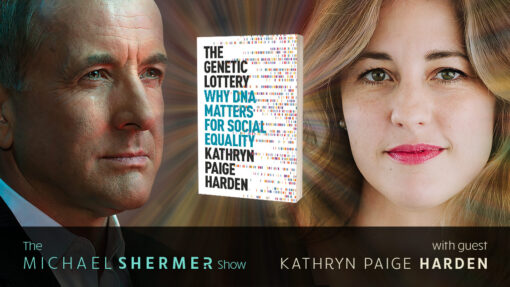
In episode 216, Michael Shermer speaks with University of Texas (Austin) professor of clinical psychology and Director of the Developmental Behavior Genetics Lab, Kathryn Paige Harden about her book The Genetic Lottery: Why DNA Matters for Social Equality.
In episode 216, Michael Shermer speaks with Kathryn Paige Harden about her book The Genetic Lottery: Why DNA Matters for Social Equality. PLUS Robert Bartholomew Havana Syndrome Hysteria and the recent U.S. Government investigation into this probable psychogenic illness.
In Science Salon # 60 — exceptionally important conversation — Dr. Shermer discusses at length the background to and research of Dr. Nicholas Christakis, a physician and evolutionary sociologist famous for his study of social networks in humans and other animals. PLUS: The breadth of what can be meant by the word “hoax” makes the concept — and consequences — worthy of renewed study. Michelle E. Ainsworth reviews Bunk: The Rise of Hoaxes, Humbug, Plagiarists, Phonies, Post-Facts, and Fake News…
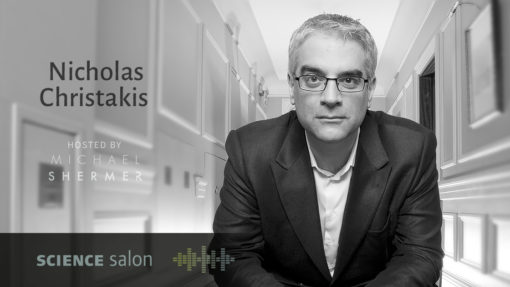
In Science Salon # 60 — an exceptionally important conversation — Dr. Shermer discusses at length the background to and research of Dr. Nicholas Christakis, a physician and evolutionary sociologist famous for his study of social networks in humans and other animals.
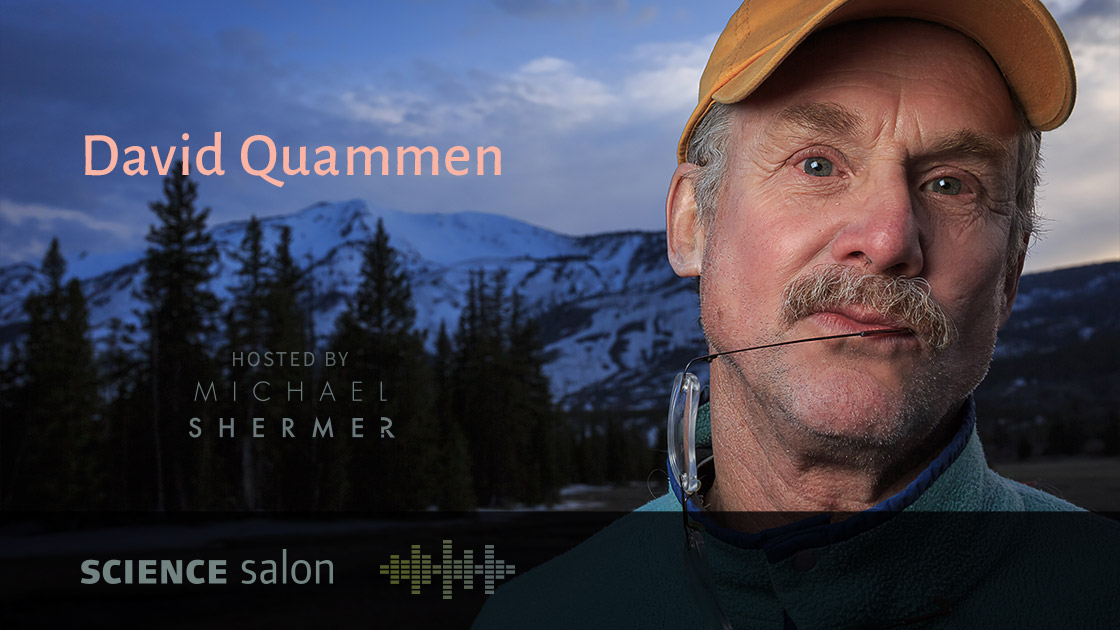
In Science Salon # 33, Michael Shermer talks with David Quammen, one of the best nature and science writers of our generation, about his new book on the history of one of the most exciting revolutions in evolution and genetics that is unfolding before our eyes.
In Science Salon # 33, Michael Shermer talks with with David Quammen, one of the best nature and science writers of our generation, about his new book on the history of one of the most exciting revolutions in evolution and genetics that is unfolding before our eyes.
In this week’s eSkeptic, Donald R. Prothero reviews Your Inner Fish: A Journey into the 3.5-Billion Year History of the Human Body, a three-part documentary series airing on PBS beginning on April 9, 2014.
Dr. Nancy Segal offers an overview of the Minnesota Study of Twins Reared Apart, its scientific contributions, and its effect on public consciousness. The study startled scientists by demonstrating that twins reared apart are as alike, across a number of personality traits and other measures, as those raised together, suggesting that genetic influence is pervasive.
In this week’s eSkeptic, we present William Stansfield’s article from the archives of Skeptic magazine Volume 10, Number 4 in which he critiques the typing monkeys metaphor generated by Richard Hardison and Richard Dawkins as being too unlike the biological realities of natural selection.
In this Caltech lecture, Carl Zimmer, an award-winning science writer (New York Times, Discover), takes readers on a frightening tour of the H1N1 flu virus, how it evolved, and what deadly diseases tell us about how evolution works.
Culled from the expansive work of Carl Sagan, we present some of his own words on the cosmos, ETs, childhood, genes, brains, pseudoscience, science literacy, nonsense, uncertainty, biology, history and God.
The author of the highly acclaimed and controversial book, Taboo: Why Black Athletes Dominate Sports and Why We’re Afraid to Talk About It, investigative journalist Jon Entine, in his new book Abraham’s Children, attempts to answer new taboo topics, such as: Did Moses really live? What was the real fate of the Lost Tribes?
NEXT →



















